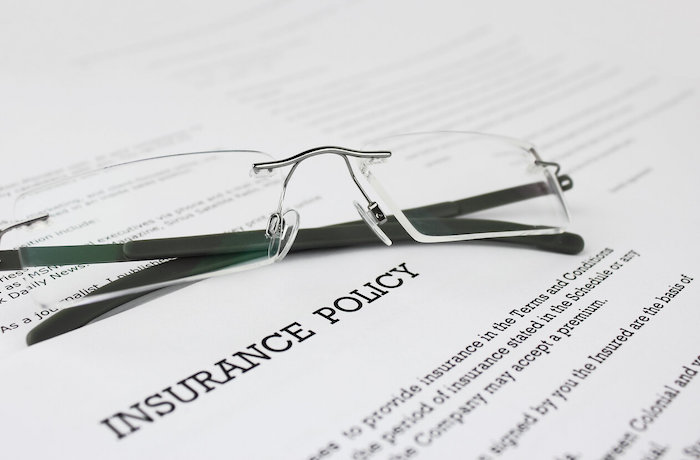Dear Colleague,
We are writing to alert you to an important – and problematic – insurance policy position held by The Travelers Companies that might directly impact your commercial policyholders. We hope you will join us in bringing this issue to the attention of underwriters at Travelers and advocating for a change in Travelers’ position in this area.
We identified this problem recently during our representation of a small business owner whose pizza shop suffered fire damage. The owner had a Travelers-issued manuscript policy for small business owners (MP T1 02 02 05).
This MP provided Business Income (BI) and Extra Expense (EE) coverage to the insured for 12 months of actual loss. Notably, the MP also provided an additional 60 days of Extended Business Income (EBI) for a period of 60 days and an additional endorsement that extended it to 90 days.
The landlord of the strip mall where the pizza shop was located took 18 months to rebuild. Travelers duly paid 12 months under the BI clause. However, when we submitted a claim for the 90-day EBI, the Travelers adjuster denied it. In explaining this denial, Travelers stated that the EBI was included in the 12 months of BI coverage and therefore did not apply to any days subsequent to that time frame.
We believe this position is patently wrong. In our view, the “extended” portion of Extended Business Income means “in addition to and beyond” the baseline BI coverage. In our experience, EBI coverage starts on the day after the insured resumes normal business operations. We base this position on years of industry practice and our shared understanding of the intention of EBI coverage: to provide a “ramp-up period” that enables the insured to get sales and revenue back to where they were prior to the loss.
The Travelers position poses a clear problem for any business owner who must rely on Travelers-issued EBI coverage. These business owners will be short-changed – an injustice exacerbated by the fact that insureds are paying for an endorsement for EBI but are in fact getting less coverage.
We firmly believe Travelers should have paid the EBI claim described above, and should do so in other such cases in the future.
We wanted to alert you to this unfair practice by Travelers, and ask that you consider bringing this to the attention of your Travelers representatives and underwriters. We have attached a detailed brief providing specific information on this issue.
We value your role as advocates for your clients, and are confident you would object if Travelers similarly denied EBI coverage to one of your insureds facing a 12-month loss.
Please review the attached materials. We hope you will take a moment to contact us and discuss constructive next steps to address this important issue.
We appreciate your attention to this matter.
Sincerely,
SMW
MEMORANDUM
TO: Agents
FROM: Mindi Labella, CPA, VP Swerling Milton Winnick Public Adjusters
RE: Travelers Position on Extended Business Income Coverage
DATE: 8 April 2019
Background
The Travelers Companies (“Travelers”) recently denied a portion of the property loss claim from a business (pizza shop) owner whose leased premises suffered major damage from a fire in December 2016. The business owner (“the Insured”) purchased the manuscript policy MP T1 02 02 05 for small business owners from Travelers prior to the loss. This policy provided both Business Income and Extra Expense coverage to the Insured for 12 months of actual loss, as well as for 60 days of Extended Business Income. Additionally, the Insured purchased the ‘Eating Establishment Endorsement’ form MP T1 68 03 06, which increased the Extended Business Income from 60 to 90 days.
Repairs to the fire-damaged building, overseen and financed by the building owner (the Landlord), required more than one year to complete. The Insured was not able to resume operations until June 2018 – 18 months after the fire.
Travelers paid the Insured’s business interruption claim for the first 12 months of actual loss, but denied the Extended Business Income, which began in June 2018. According to the Travelers adjuster who denied the EBI claim, the 12 months of Business Interruption Insurance (BII) was exhausted, and this 12-month limitation includes Extended Business Income (EBI).”
Thus, having paid for 12 months of BII coverage, Travelers denied any additional claims for EBI. What’s more, the Insured had purchased an enhancement endorsement – providing 30 additional days of coverage – and Travelers also denied additional claims under this coverage provision. Based on Travelers’ position, the additional coverage given under the enhancement endorsement was included within the 12-month limit.
Travelers’ position in this matter forecloses virtually any scenario in which the Insured – or, presumably, any business owner holding such a policy issued by Travelers – could utilize EBI coverage. Even facing an endorsement providing 365 days of EBI, it seems, Travelers believes it can rightly deny any claims beyond the 12 months of BII.
The Relevant Policy Provisions
The Insured’s policy contains a header labeled “Business Income and Extra Expense” and has the following three sub-heads: a. Business Income, b. Extra Expense and c. Extended Business Income. These are three separate and distinct coverages, each with their own definitions.
For specific reference to the policy provision for Extended Business Income, please refer to Appendix A at the end of this Memo.
The relevant section of the policy’s Business Income and Extra Expense Coverage – the final paragraph – is silent regarding the third coverage, Extended Business Income. Because the Declarations page of the Insured’s policy likewise contains no reference to “Extended Business Income,” we must look within the policy to determine the limit for this coverage.
Paragraph (c) of the Business Income coverage section addresses Extended Business Income. In our view, reading this section would lead virtually any business owner to interpret the Extended Business Income coverage as being “in addition to”, rather than included in a limit that does not even reference the EBI coverage.
Because the word “Extended” is not explicitly defined in the policy, we must assume the common meaning of the word. Black’s Law Dictionary defines “Extend” as: “To expand, enlarge, prolong, widen, carry out, further than the original limit; as, to extend the time for filing an answer, to extend a lease, term of office, charter, railroad track, etc.” The definition says “further than the original limit.”
This definition clearly suggests that the original limit is capped by either the period of time it should take to repair or replace the property OR 12 months – whichever comes first. If 12 months comes first, the Extended Business Income must go beyond that period. This is the only logical and rational interpretation a business owner can take. Otherwise, the Insured would have effectively purchased coverage that could never, under any scenario, actually be utilized.
The Insured paid an additional premium for an enhancement endorsement affording more coverage. The first item in the enhancement endorsement extends the Extended Business Income from 60 to 90 days. If we accept Travelers’ interpretation of Extended Business Income, this enhancement actually reduces the insured’s overall coverage.
In Travelers’ scenario, an insured with 12 months of Business Income coverage and 60 days of Extended Business Income would have to resume operations 10 months after the loss, and then would begin the 60-day Extended Business Income period in order to maximize both coverages. By purchasing this enhancement, this insured would now have to resume operations in 9 months and then begin the 90-day Extended Period to maximize both coverages. For even more protection, Travelers will gladly sell the insured 365 days of Extended Business Income coverage. But there’s a catch: this insured could never use both the Business Income and Extended Business Income coverage, according to Travelers’ interpretation. Perversely, the enhancement for which the insured paid an additional premium ends up placing the insured in a worse position than they enjoyed prior to the loss.
The legal standard in Massachusetts is “consider(ing) what an objectively reasonable insured, reading the relevant policy language, would expect to be coverage.” Thomas McGregor v. AllAmerica Insurance Company 449 Mass. 403 (2007). According to this standard, a reasonable reading of the Extended Business Income coverage provision would suggest an additional coverage that complements, or augments, the basic Business Interruption coverage. Any other interpretation – e.g., buying additional Extended Business Income coverage that reduces the base Business Income coverage – renders the extended coverage illusory.
Because Travelers uses its own forms to draft coverage, all Travelers-issued coverage presumably reflects Travelers’ particular views and intentions. And yet, Travelers’ forms show a remarkable resemblance to standard ISO forms typically used in the general insurance marketplace. (Please see Appendix C for reference)
It is also worth noting that the Extended Business Income is listed with the Business Income coverage under the additional coverages (paragraph d), and that Extra Expense is afforded its own separate paragraph (e). In the later edition (BP 00 03 01 06), Extended Business Income is given its own section under “Business Income,” along with Business Income and Extra Expense. While it is very similar to the format Travelers utilizes, the wording is fundamentally the same in the later Business Owner’s Policy (BOP).
The other pertinent ISO form is the Commercial Property form CP 00 30 04 02, Business Income (with Extra Expense). This policy affords coverage for Extended Business Income as well. (Please see Appendix D for reference)
Notably, all three policies contain similar wording regarding Extended Business Income coverage, including the outline of the coverage. However, other carriers have agreed that the Extended Business Income coverage is in addition to – and not part of – the time limit for the Business Income and Extra Expense coverage. The strikingly similar wording within all three forms suggests all carriers should similarly apply such coverage.
The Relevant Court Cases
The analysis above begs a compelling question: what if the Insured had enhanced the policy to include 365 days of Extended Business Income? A recent case in New Jersey addresses this very situation. In Milk Indus. Mgmt. Corp. v. Travelers Indem. Co. of Am. (D. N.J., 2018), the insured purchased an enhancement endorsement extending the Extended Business Income from 180 days to 365 days. MIMCO rented a facility that was destroyed by fire and the building’s owner decided not to replace the facility. MIMCO had purchased a policy from Travelers, and MIMCO made claim for business income for the term of a contract with a customer, as well as payment for the Extended Business Income for 365 days.
While the facts of Milk Indus. Mgmt. Corp. differ slightly from our situation, key holdings nonetheless directly apply to our own case. As part of their argument, Travelers stated “(T)he purpose of Extended BI is to provide coverage to an insured during the time period after the property has been restored and the insured essentially gets back on its feet and resumes operations at the level it was operating before the loss.” Travelers agrees that the Extended Business Income period starts after the business resumes operations and is intended to help the insured get back up on its feet. However, Travelers inclusion of the Extended Business Income period in the Business Income limit directly violates the spirit of the Extended Business Income coverage.
Conclusion
Travelers has taken a position on Extended Business Income that is incorrect and unsupported by the policy. Additionally, Travelers’ interpretation is not that of an “objectively reasonable insured,” thereby rendering the policy illusory. Typically, carriers only change their position on coverage when an insured litigates – a costly and lengthy process that doesn’t always produce holdings that readily apply to analogous fact patterns. Consumers and agents must be aware of the position which Travelers has taken, and through the consumers and agents we can work to change their minds.
Appendix A – Extended Business Income
The policy for Extended Business Income states:
c. Extended Business Income
If the necessary “suspension” of your “operations” produces a Business Income loss payable under Paragraph a. Business Income above, we will also pay for the actual loss of Business Income you sustain during the period that:
(1) Begins on the date property is actually repaired, rebuilt or replaced and “operations” are resumed; and
(2) Ends on the earlier of:
(a) The date you could restore your “operations” with reasonable speed, to the level which would generate the Business Income amount that would have existed if no direct physical loss or damage occurred; or
(b) Sixty consecutive days after the date determined in Paragraph (1) above
Appendix B – the final paragraph of the Business Income and Extra Expense Coverage
d. If the Declarations show for Business Income and Extra Expense:
(1) Actual loss for 12 consecutive months, then we will pay for loss of Business Income and Extra Expense that occurs within 12 consecutive months following the date of direct physical loss or damage; or
(2) Actual loss up to 12 consecutive months subject to a maximum dollar limit, then we will pay for loss of Business Income and Extra Expenses that occurs within 12 consecutive months following the date of direct physical loss or damage, subject to the limit shown in any one occurrence.
Appendix C – the Businessowners Policy (BP 00 01 01 97)
(2) Extended Business Income
If the necessary suspension of your “operations” produces a Business Income loss payable under this policy, we will pay for the actual loss of Business Income you incur during the period that:
(a) Begins on the date property except finished stock is actually repaired, rebuilt or replaced and operations are resumed: and
(b) Ends on the earlier of:
(i) The date you would restore your “operations”, with reasonable speed, to the level which would generate the Business Income amount that would have existed if no direct physical loss or damage had occurred; or
(ii) 30 consecutive days after the date determined in (a) above.
Appendix D — Commercial Property form CP 00 30 04 02, Business Income
(with Extra Expense)
c. Extended Business Income
(1) Business Income Other Than “Rental Value” If the necessary “suspension” of your “operations” produces a Business Income loss payable under this policy, we will pay for the actual loss of Business Income you incur during the period that:
(a) Begins on the date property (except “finished stock”) is actually repaired, rebuilt or replaced and “operations” are resumed; and
(b) Ends on the earlier of:
(i) The date you could restore your “operations”, with reasonable speed, to the level which would generate the business income amount that would have existed if no direct physical loss or damage had occurred; or
(ii) 30 consecutive days after the date determined in (1)(a) above.




